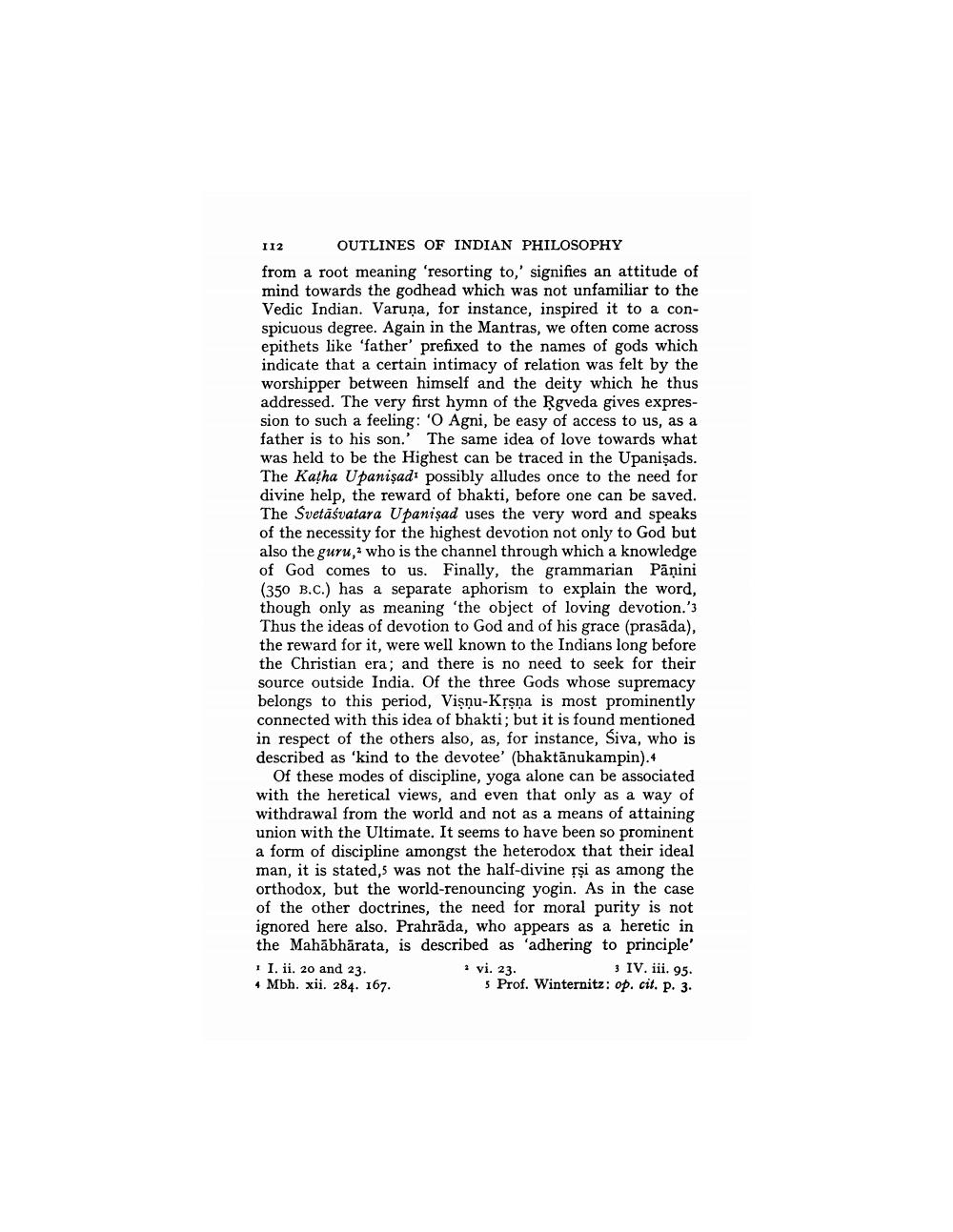________________
112 OUTLINES OF INDIAN PHILOSOPHY from a root meaning (resorting to,' signifies an attitude of mind towards the godhead which was not unfamiliar to the Vedic Indian. Varuna, for instance, inspired it to a conspicuous degree. Again in the Mantras, we often come across epithets like 'father' prefixed to the names of gods which indicate that a certain intimacy of relation was felt by the worshipper between himself and the deity which he thus addressed. The very first hymn of the Rgveda gives expression to such a feeling: 'O Agni, be easy of access to us, as a father is to his son.' The same idea of love towards what was held to be the Highest can be traced in the Upanişads. The Katha Upanişadt possibly alludes once to the need for divine help, the reward of bhakti, before one can be saved. The Svetäśvatara Upanişad uses the very word and speaks of the necessity for the highest devotion not only to God but also the guru, who is the channel through which a knowledge of God comes to us. Finally, the grammarian Pāṇini (350 B.C.) has a separate aphorism to explain the word, though only as meaning 'the object of loving devotion.'3 Thus the ideas of devotion to God and of his grace (prasada), the reward for it, were well known to the Indians long before the Christian era; and there is no need to seek for their source outside India. Of the three Gods whose supremacy belongs to this period, Vişnu-Kșsna is most prominently connected with this idea of bhakti; but it is found mentioned in respect of the others also, as, for instance, Siva, who is described as 'kind to the devotee' (bhaktänukampin).4
Of these modes of discipline, yoga alone can be associated with the heretical views, and even that only as a way of withdrawal from the world and not as a means of attaining union with the Ultimate. It seems to have been so prominent a form of discipline amongst the heterodox that their ideal man, it is stated,5 was not the half-divine șşi as among the orthodox, but the world-renouncing yogin. As in the case of the other doctrines, the need for moral purity is not ignored here also. Prahrada, who appears as a heretic in the Mahābhārata, is described as 'adhering to principle' 1 1. ii. 20 and 23.
1 vi. 23.
3 IV. iii. 95. Mbh. xii. 284. 167.
5 Prof. Winternitz: op. cit. p. 3.




